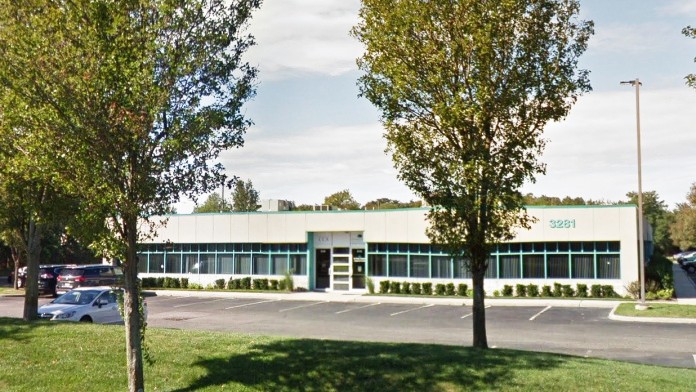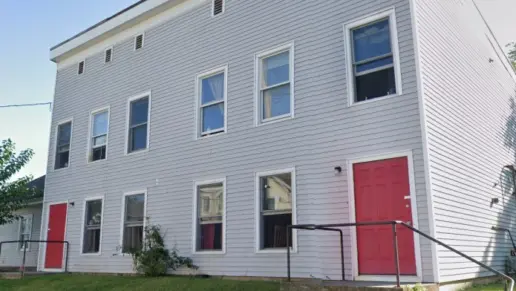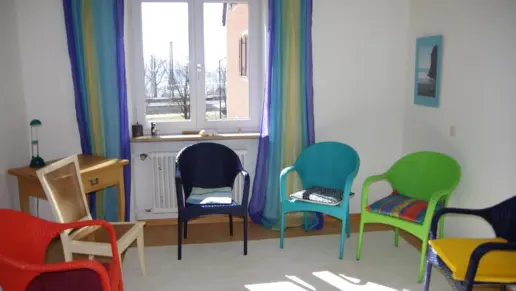They should care a little more about the patients, and a lot less about the money. If they did that, maybe they'd be able to stop making excuses and would start to provide a better service. Also, the counselors provide poor treatment so getting sober is more complicated than ...
About Community Counseling Services
Community Counseling Services is an outpatient behavioral health clinic in Ronkonkoma, New York. They provide counseling, addiction education and support for the chemically dependent person. This facilitates lasting recovery from substance use disorders. All while helping individuals live a healthy lifestyle. This facility is licensed by OASAS for chemical dependency outpatient services. This means they met the highest standards for quality care. In addition, they boast multidisciplinary care personnel comprising social workers, psychiatrists and counselors.
These experts are grounded in personalized care delivery through proven therapeutic practices. Many of them are certified substance abuse counselors. One cool thing about this facility is its flexibility. Various day and evening hours are available to meet the scheduling needs of each client. They offer Suboxone maintenance programs for opioid dependence treatment. Suboxone is popularly employed in medication assisted treatment. This recovery approach uses medicine and counseling to treat addiction.
Suboxone minimizes the withdrawal symptoms and curbs cravings. This allows the patient to receive counseling and therapeutic support to aid psychological healing. Their Suboxone maintenance program includes both individual and group therapy sessions as well as weekly supervised drug testing. Their comprehensive outpatient substance addiction program involves evaluation, counseling and addiction education. They also provide random urine screening, breathalyzer testing and referral services.
Counseling encompasses individual and group sessions, as well as family and codependency counseling. Their evaluation satisfies the requirement for community support and judicial service agencies. This includes probation departments, drink driver programs and TASC, among others. Most past clients criticized this facility for their lack of commitment to the client’s recovery journey and the poor attitude of their care personnel. Still, a few commend them for their impressive quality of care.
Latest Reviews
Rehab Score
Gallery

Location
Other Forms of Payment
Medicaid is a state based program that helps lower-income individuals and families pay for healthcare. Medicaid covers addiction treatment so those enrolled can use their coverage to pay for rehab. When a program accepts Medicaid the client often pays very little or nothing out of their own pocket.
Private insurance refers to any kind of healthcare coverage that isn't from the state or federal government. This includes individual and family plans offered by an employer or purchased from the Insurance Marketplace. Every plan will have different requirements and out of pocket costs so be sure to get the full details before you start treatment.
Self-pay involves paying for treatment out of your own pocket. You can use savings or credit, get a personal loan, or receive help from family and friends to fund your treatment. If you don't have insurance or your insurance plan doesn't cover a specific program, self-pay can help ensure you still get the care you need.
Financial aid can take many forms. Centers may have grants or scholarships available to clients who meet eligibility requirements. Programs that receive SAMHSA grants may have financial aid available for those who need treatment as well. Grants and scholarships can help you pai for treatment without having to repay.
Sliding scale payments are based on a client's income and family size. The goal is to make treatment affordable to everyone. By taking these factors into account, addiction recovery care providers help ensure that your treatment does not become a financial burden to you or your family, eliminating one barrier to care.
Addiction Treatments
Levels of Care
Treatments
The goal of treatment for alcoholism is abstinence. Those with poor social support, poor motivation, or psychiatric disorders tend to relapse within a few years of treatment. For these people, success is measured by longer periods of abstinence, reduced use of alcohol, better health, and improved social functioning. Recovery and Maintenance are usually based on 12 step programs and AA meetings.
When you choose drug rehab in New York, you'll participate in a variety of treatments that are designed to help you live a drug-free lifestyle. Common methods of treatment include group, individual, and family counseling, medication management, nutrition, exercise, and management of co-occurring mental health disorders.
Many of those suffering from addiction also suffer from mental or emotional illnesses like schizophrenia, bipolar disorder, depression, or anxiety disorders. Rehab and other substance abuse facilities treating those with a dual diagnosis or co-occurring disorder administer psychiatric treatment to address the person's mental health issue in addition to drug and alcohol rehabilitation.
A combined mental health and substance abuse rehab has the staff and resources available to handle individuals with both mental health and substance abuse issues. It can be challenging to determine where a specific symptom stems from (a mental health issue or an issue related to substance abuse), so mental health and substance abuse professionals are helpful in detangling symptoms and keeping treatment on track.
Opioid rehabs specialize in supporting those recovering from opioid addiction. They treat those suffering from addiction to illegal opioids like heroin, as well as prescription drugs like oxycodone. These centers typically combine both physical as well as mental and emotional support to help stop addiction. Physical support often includes medical detox and subsequent medical support (including medication), and mental support includes in-depth therapy to address the underlying causes of addiction.
Programs


Clinical Services
Whether a marriage or other committed relationship, an intimate partnership is one of the most important aspects of a person's life. Drug and alcohol addiction affects both members of a couple in deep and meaningful ways, as does rehab and recovery. Couples therapy and other couples-focused treatment programs are significant parts of exploring triggers of addiction, as well as learning how to build healthy patterns to support ongoing sobriety.
Research clearly demonstrates that recovery is far more successful and sustainable when loved ones like family members participate in rehab and substance abuse treatment. Genetic factors may be at play when it comes to drug and alcohol addiction, as well as mental health issues. Family dynamics often play a critical role in addiction triggers, and if properly educated, family members can be a strong source of support when it comes to rehabilitation.
Group therapy is any therapeutic work that happens in a group (not one-on-one). There are a number of different group therapy modalities, including support groups, experiential therapy, psycho-education, and more. Group therapy involves treatment as well as processing interaction between group members.
In individual therapy, a patient meets one-on-one with a trained psychologist or counselor. Therapy is a pivotal part of effective substance abuse treatment, as it often covers root causes of addiction, including challenges faced by the patient in their social, family, and work/school life.
Contact Information
3281 E Veterans Memorial Highway
Suite E-14
Ronkonkoma, NY 11779

